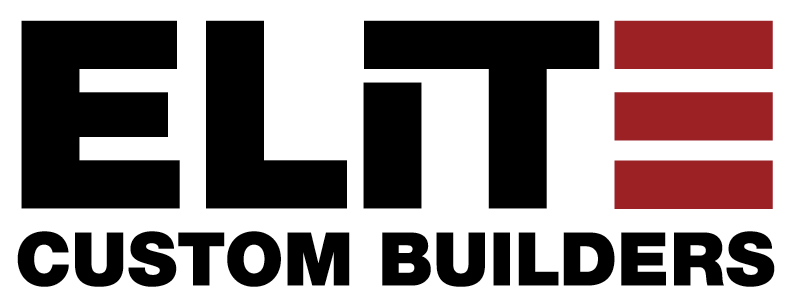You’ve decided to purchase your first home — it’s an exciting and scary process that can feel overwhelming. It’s important to find someone you can trust who will guide you through the process and keep you informed.
Whether you’re buying an existing home or a new home, you’ll likely still need to work with a lender to mortgage the majority of the home’s value.
We recommend doing your research first instead of selecting the first mortgage lender suggested to you — rates vary, and you want to ensure you get the best one from a reputable lender. Read on to learn how to select your lender and prepare for the home buying process, and financing a home.
DETERMINE WHAT YOU’RE ELIGIBLE FOR
There are two primary types of mortgages: fixed-rate and adjustable rate — we’ll come back to that later. Some buyers are eligible for specific loans that are government-backed. These loans are different from conventional loans that are not guaranteed or insured by the federal government.
The government-backed loans that you may be eligible for have some distinct advantages that are worth considering. There are three types: FHA, VA and USDA/RHS.
Federal Housing Administration (FHA) Loans
FHA loans are managed by the Department of Housing and Urban Development. They are a little more lenient than conventional loans in that the required down payment is lower, and the credit score needed isn’t as high.
To qualify for an FHA loan, you must have a steady employment history (or worked for the same employer for the past two years), have a valid Social Security number and be a lawful U.S. resident. The minimum down payment is 3.5% of the home’s total value, and the home must be purchased to be lived in as a primary residence.To be eligible for the 3.5% down payment, you must have a credit score of 580 — if your score is under 580, you may still be eligible for the loan; however, you’ll have to put more money down, usually around 10%.
It is important to note that if you have an FHA loan, you will have to pay insurance on the mortgage — the duration of the insurance payments and the amount is dependent on the size and term of the loan.
Veterans Affairs (VA) Loan
Military services members and their families are eligible for loans offered through the U.S. Department of Veterans Affairs. While there are many terms and conditions for these loans, they offer one (BIG) distinct advantage — borrowers can often get up to 100% of the financing for their home. That means no down payment, which is the biggest hurdle for many buyers.
United States Department of Agriculture (USDA) / Rural Housing Service (RHA) Loan
For rural residents, the Rural Housing Services (part of the USDA) offer a loan program for “rural residents who have a steady, low or modest income and yet are unable to obtain adequate housing through conventional financing.” Eligibility is determined by total income, which cannot exceed 115% of the adjusted area median income.
If you think you may be eligible for one of these government-backed loans, we encourage you to research throughly so that you can weigh your options.
OTHER LOAN OPTIONS
Remember we said we’d come back to fixed-rate and adjustable rate loans? This is the next decision you need to make about your loan. Some would argue that it should be the first; however, we find that some of our customers who have already secured their loan were unaware of the government-backed options.
So what’s the difference?
- A fixed-rate loan will always have the same interest rate — your payments will never change, even if you finance with a 30-year fixed-rate loan. This can be helpful for those who need to accurately budget each month and who like the security of a stable payment. If you’re staying in your home long-term, this is the most recommended type of loan. It’s also recommended for first-time buyers.
- An adjustable-rate mortgage will vary as the interest rate will adjust periodically. Usually, it’s an annual adjustment after a few years of the rate being fixed. This is less predictable as the interest rate will fluctuate, but there is an interest rate cap that limits exactly how much the rate can fluctuate over the life of the loan and month-to-month. The interest during the initial fixed period is generally lower. Generally, adjustable-rate mortgages are best for those who only plan to live in the home for a few years.
- The final consideration is between a conforming loan and a jumbo loan; however, this isn’t an option that many people need to consider. A conforming loan falls within the maximum size limits set by the underwriting guidelines of Fannie Mae or Freddie Mac. A jumbo loan exceeds the conforming loan limit and is higher risk to the lender, meaning that the borrower must have a larger down payment and excellent credit. As expected, the interest on a jumbo loan can be quite high.
SHOULD I GET PRE-APPROVED?
This is always a good idea. Getting pre-approved doesn’t mean that you’ve applied for a specific loan, and it doesn’t obligate you to buy a house. It simply means that the lender you have selected has looked at your employment, income, credit and assets and is highly confident you would be approved for a loan up to a certain amount. The pre-approval letter will let you know exactly how much you have been approved for, giving you an idea of what you can afford.
But be cautious — many people are excited by the amount they are pre-approved for, because it’s more than you expected. If you get approved for $500,000, this doesn’t necessarily mean you should buy a half-million dollar home. You need to decide how much you could comfortably pay each month while still being able to pay for:
- Utilities
- Car payment
- Insurance
- Groceries
- Savings
- Other expenses
Based on your comfortable monthly payment, you can determine a range for the home you are able to buy.
CHOOSING A LENDER

Now that you understand the types of loans available to you and know what pre-approval means, it’s time to find a lender. Like any major decision, this one requires shopping around. They don’t all offer the same loans, and you want to make sure you trust the lender.
Sometimes, lenders will entice you with offers like “no closing costs” — but we encourage you to ask questions. Sometimes you’ll be paying for those costs elsewhere without knowing.
So what do you need to ask each potential lender?
- What does each option look like for your specific situation? Question the implications of each option, not just for now — but in the years to come, too.
- Will your loan be sold? While the sale of your loan won’t affect your rate or payments, it may mean that down the line, you’re dealing with someone new who may not be as helpful.
- What will the turnaround time look like for your loan? If you’re pre-approved and you find a home that you love, how long will it take the loan to be processed and approved?
- How will the lender communicate with you? With something as time-sensitive as a mortgage, you’ll want to make sure that your lender is responsive and quick to communicate with you.
Remember, meeting with a lender doesn’t obligate you to go through the pre-approval process. Because the pre-approval process is a hard inquiry into your credit, you only want to do it once with the lender you select.
If you’re building a custom home, the loan process will be different, but it doesn’t have to be more complicated. You’ll first obtain a construction loan, which will then be refinanced into your mortgage when the construction is complete.
Elite Custom Builders | Custom Home Builder | Residential Contractor | Bridgeport, WV | Surrounding Areas
At Elite Custom Builders, we have strong relationships with mortgage lenders in the Bridgeport and Clarksburg area and are happy to make recommendations to help you get the loan you need for your new custom home.
